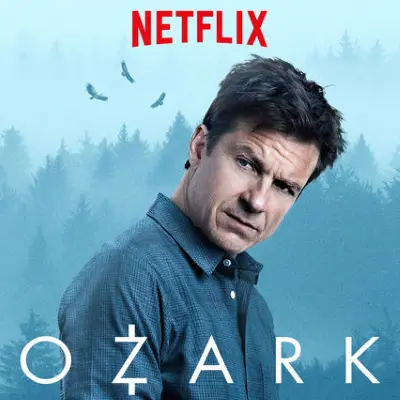Ozark's series finale was emblematic of what made it so frustrating
-

The finale delivered shock without substance, says Jen Chaney. "The ending of Ozark, the Netflix series about overcoming the many downsides of laundering money for a drug cartel, is brutal, abrupt, sort of vague, and potentially shocking," says Chaney. "What it is not, however, is surprising. In fact, it is 100 percent emblematic of the things that made Ozark frustrating more often than it was fulfilling." Chaney says that Ozark's main argument, which it has been telling since Episode 1, is "that rich, merciless people always prevail because money and the power that comes with it are what matter most in American society." So, Chaney adds, "Ozark ends, essentially, by telling us the same thing it has been saying from the beginning. It makes sense for any series, Ozark included, to conclude by echoing its start and coming full circle. The problem in Ozark’s case is that doing so only emphasizes the degree to which the show failed to add genuine complexity to the themes it addresses. Most viewers probably knew before they ever watched Ozark that the wealthy and sophisticated have advantages that the poor and less well connected do not. The ending merely confirms that reality..."
ALSO:
- Even if you liked Ozark, you must admit the final episodes were disappointing: "Yes, I watched the second half of the Netflix hit series’ final season, and no, it wasn’t good," says Mick LaSalle. "And I say this as someone who used to like the show. Centering on the husband-and-wife team of Marty (Jason Bateman) and Wendy Byrde (Laura Linney), money launderers for a Latin American drug cartel, the show was funny, outrageous and surprising — until gradually it became maudlin, self-serious, ludicrous and without impact. The first thing that went wrong was the destruction of Marty as a character. He was the show’s star and started off as the most interesting person on the show, a seemingly bland fellow with an impressive ability to think on his feet and survive. Over four seasons, Wendy evolved into the flashier figure, transforming into Lady Macbeth. And for a while that was OK, because it became Marty’s job to get them out of the trouble that Wendy got them into."
- Ozark's series finale spoke to the show’s sense of its own importance: "From a filmmaking perspective, this seems like a spin on The Sopranos finale, but on a show that lacks the courage of its convictions," says Daniel D'Addario. "(The Ozark finale was directed by (Jason) Bateman, who has won an Emmy for his work behind the camera.) Not literally showing the final act in the Byrdes’ rise suggests ambiguity, but Bateman makes sure to leave in audio of the gunshot — just in case viewers were confused."
- Ozark's finale was solid, but sloppy, but the last batch of seven episodes were sleek, direct and action-packed
- Ozark's bleak, brutal ending effectively squashes any semblance of humanity
- Ozark's series finale draws mixed reactions
- In its final moments, Ozark reasserted the supremacy of family, specifically the way it can corrupt an individual over time
- Like every prior episode, the Ozark series finale featured four key symbols in its opening title card
- Jason Bateman has started watching Ozark with his 15-year-old daughter -- it's the first TV show or movie she's ever watched him in: "This is a big deal. I haven't seen them for five years, she's never seen the show," he says, adding: "She's never seen anything I've ever done because, you know, if you've got kids they usually give it up for everybody except you."
- Julia Garner on saying goodbye to Ruth: "It almost feels like a part of me has died in a way," she says. "Ruth gave me so much, not only as an actor but also as a person. She gave me a sense of confidence that I didn’t have before. She gave me that. It’s weird because in the middle of filming I have more in common with my character than with myself. I’ll wonder, Why am I feeling like this? and I’ll think about it and go, Oh, because my character is feeling that way. Does that make any sense?
- Ozark showrunner Chris Mundy says the writers' room argued spiritedly about which of the show’s still-standing characters would survive: “I wanted everybody to have active choices in the last seven episodes,” says Mundy in discussing the series finale.
TOPICS: Ozark, Netflix, Chris Mundy, Jason Bateman, Julia Garner, Series Finales
